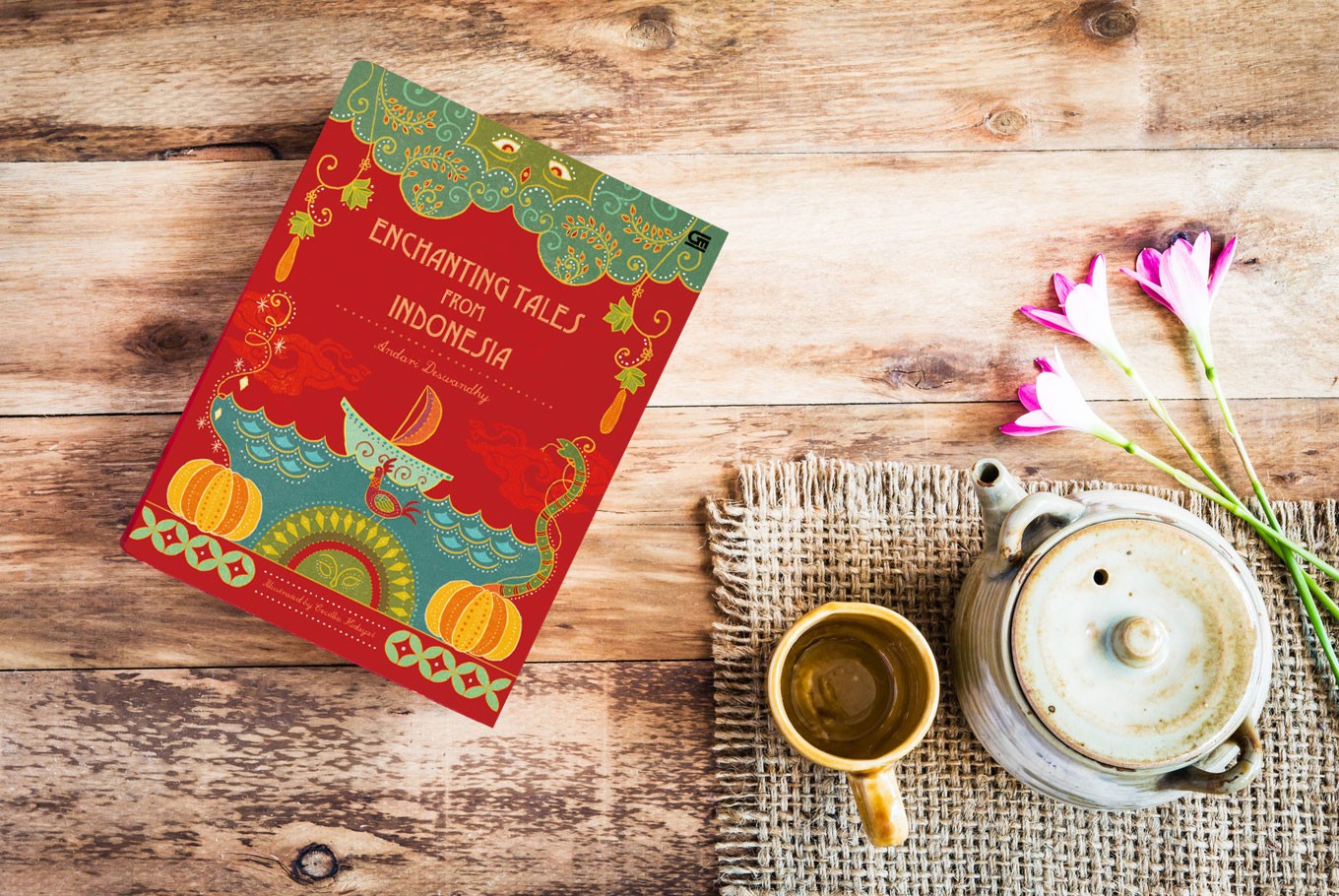Popular Reads
Top Results
Can't find what you're looking for?
View all search resultsPopular Reads
Top Results
Can't find what you're looking for?
View all search results'Enchanting Tales from Indonesia'
Andari said she found it very strange to not see a single international version of the Indonesian folktales that she loves so much.
Change text size
Gift Premium Articles
to Anyone
I
ndonesian children who study at international schools often forget about their roots but this is not the case with writer Andari Deswandhy. The 16-year-old writer has practically spent her entire life studying under the international education system and curriculum.
Andari attended the British International School in Jakarta for 12 years before she moved to Deerfield in the United States to attend the Deerfield Academy Boarding School. During a summer when she was 12, she also went to the Wolfeboro Summer Boarding School in New Hampshire to take a 7-week course on English writing.
In 2014, she took a three-week creative writing class at the Columbia University.
It is obvious that reading and writing have been a large part of Andari’s life. It is also very fortunate that both of her parents support her passion in reading and writing. After all, her parents were the ones who first introduced her to Indonesian classic literary and folktales when she was a kid.
Throughout her studies at the international schools, there is something that has always made her restless.
Andari said she found it very strange to not see a single international version of the Indonesian folktales that she loves so much. On the other hand, folktales from other countries are commonly read and studied at international schools.
Read also: Three underrated Indonesian folktales that teach us a little more about life
In the spirit of making other students enjoy the stories she learned from her parents, Andari decided to write a book featuring the English version of her top five Indonesian folktales. The book is called Enchanting Tales from
Indonesia, which comprises five folktales — “The Hidden Treasure” from Bali, “Malin Kundang” from West Sumatera, “Bawang Merah and Bawang Putih” from Riau, “Cindelaras” from East Java and “Timun Mas” from Central Java.
“I started writing in July 2016 and I worked on it until November. So, the writing process took about four months,” Andari said during her book launch at Pondok Indah Mall in South Jakarta.
“There weren’t any major problems during the writing process. I just adapted some scenes a little to what I wanted them to be.”
Out of the folktales she adapted for the book, Andari said her most favorite one was “Malin Kundang.”
“My parents told me that story since I was very young and I also like the message conveyed in that story. It really emphasizes loyalty and respect, not only to your parents and family, but to people and your surroundings,” she said.
By adapting “Malin Kundang” and the other folktales, Andari said she did not merely translate them from original sources into English, but also provided her own context, interpretation and imagination about what they would be like if she was the one who created them.
Read also: Photographer rekindles local folktales
Andari said she basically maintained the important parts of each folktale, such as the beginnings and the endings, but in between, she put her imagination to work and made a few changes here and there.
Since the book is aimed at children, Andari said she only used simple English to present the folktales to make it easier for them to understand the stories.
Despite the fact that she used simple English in the book, Andari shows her strength as a writer by giving advanced literary treatment on her narratives in presenting the folktales.
The stories are both easy to understand for children yet at the same time, there are also emotions and engagements embedded within the simplistic narratives that will ensure older readers also find it entertaining and compelling.
Andari’s wordplay in the book finds a perfect complement in the form of illustrations made by artist Cecilia Hidayat.
While Andari’s writings in the book are simple yet engaging, Cecilia’s illustrations provide the book with very contemporary visuals that at the same time also deliver and present the traditional traits of each of the cultures portrayed in the folktales.
Andari said she realized that there were hundreds of Indonesian folktales, or even more, that deserved to be translated, adding that she is definitely considering publishing similar books in the future.
“But for now, I want to focus on my first book. I am trying to grasp an audience not only locally but also internationally. My book is also being used in elementary schools in Australia,” she said.











